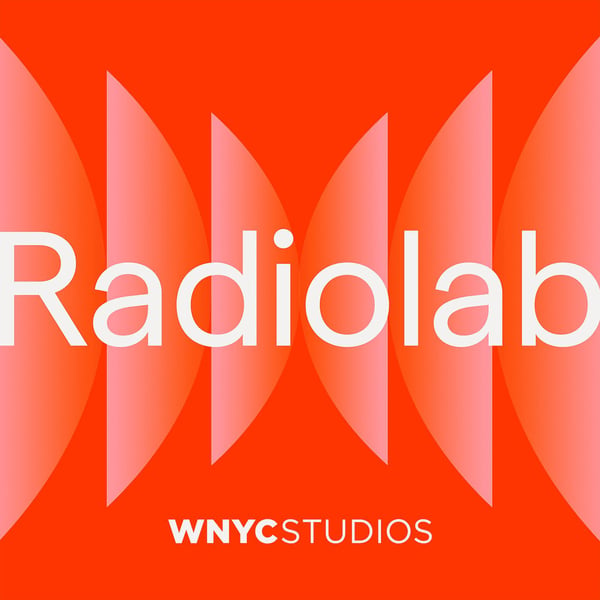9-Volt Nirvana
Radiolab
WNYC Studios
4.6 • 43.5K Ratings
🗓️ 19 August 2022
⏱️ 26 minutes
🧾️ Download transcript
Summary
Learn a new language faster than ever! Leave doubt in the dust! Be a better sniper! Could you do all that and more with just a zap to the noggin? Maybe.
Back in the early 2010s, Sally Adee, then an editor at New Scientist Magazine, went to a DARPA (Defense Advanced Research Projects Agency) conference and heard about a way to speed up learning with something called trans-cranial direct current stimulation (tDCS). A couple of years later, Sally found herself wielding an M4 assault rifle to pick off simulated enemy combatants with a battery wired to her temple. But that got then-producer Soren Wheeler thinking about this burgeoning world of electroceuticals, and if real, what limits will it reach.
For this episode, first aired back in 2014, we brought in Michael Weisend, then a neuroscientist at Wright State Research Institute, to tell us how it works (Bonus: you get to hear Jad get his brain zapped). And sat down with Peter Reiner and Nick Fitz, then at the University of British Columbia, to help us think through the consequences of a world where anyone with 20 dollars and access to a circuit board and a soldering iron, can make their own brain zapper. And then checked-in again to hear about the unexpected after-effects a day of super-charged sniper training can have on one mild-mannered science journalist.
Episode credits:
Reported by Sally Adee and Soren WheelerOriginal music by Brian Carpenter's Ghost Train Orchestra
Our newsletter comes out every Wednesday. It includes short essays, recommendations, and details about other ways to interact with the show. Sign up (https://radiolab.org/newsletter)!
Radiolab is supported by listeners like you. Support Radiolab by becoming a member of The Lab (https://members.radiolab.org/) today.Follow our show on Instagram, Twitter and Facebook @radiolab, and share your thoughts with us by emailing [email protected].
Leadership support for Radiolab’s science programming is provided by the Gordon and Betty Moore Foundation, Science Sandbox, a Simons Foundation Initiative, and the John Templeton Foundation. Foundational support for Radiolab was provided by the Alfred P. Sloan Foundation.
Transcript
Click on a timestamp to play from that location
| 0:00.0 | Hello, Lulu Miller here. This week on Radio Lab, we are rewinding to a far away time, |
| 0:07.8 | a time when our North Star, our editor and chief Soren Wheeler, was but a young and |
| 0:13.0 | green producer out in the field, get in tape, making it happen. In this episode, Soren |
| 0:18.2 | tells the strange science fictiony story of how a nine-volt battery can turn a mild-mannered |
| 0:25.2 | journalist friend, Sally A.D., into a somewhat lethal weapon. It's also a story about how |
| 0:33.0 | the public used electricity from real nine-volt batteries to order up states of mind. But |
| 0:40.0 | before I let you achieve this nine-volt nirvana, I wanted to let members of the lab know about |
| 0:45.3 | some bonus content coming your way. Landing very soon on the members feed, you'll hear |
| 0:51.2 | a few more secrets from whales. This is a companion conversation to our recent episode, The |
| 0:57.4 | Humphak and the Killer. In this bonus conversation, producer Annie McEwen learns about how whales |
| 1:02.8 | appear to have family reunions, and it's really lovely. So if you're not a member of the |
| 1:07.3 | lab, but are lab curious, go to radielab.org slash join and sign up not to miss out. And |
| 1:14.8 | now onward to our story, nine-volt nirvana. |
| 1:19.0 | Oh, wait, you're listening. |
| 1:26.0 | Okay. |
| 1:26.0 | Okay. |
| 1:27.0 | Okay. |
| 1:28.0 | Good listening to radielab. |
| 1:30.0 | Radio. |
| 1:31.0 | From W and Y. |
| 1:32.0 | Six. |
| 1:33.0 | Six. |
... |
Please login to see the full transcript.
Disclaimer: The podcast and artwork embedded on this page are from WNYC Studios, and are the property of its owner and not affiliated with or endorsed by Tapesearch.
Generated transcripts are the property of WNYC Studios and are distributed freely under the Fair Use doctrine. Transcripts generated by Tapesearch are not guaranteed to be accurate.
Copyright © Tapesearch 2025.

